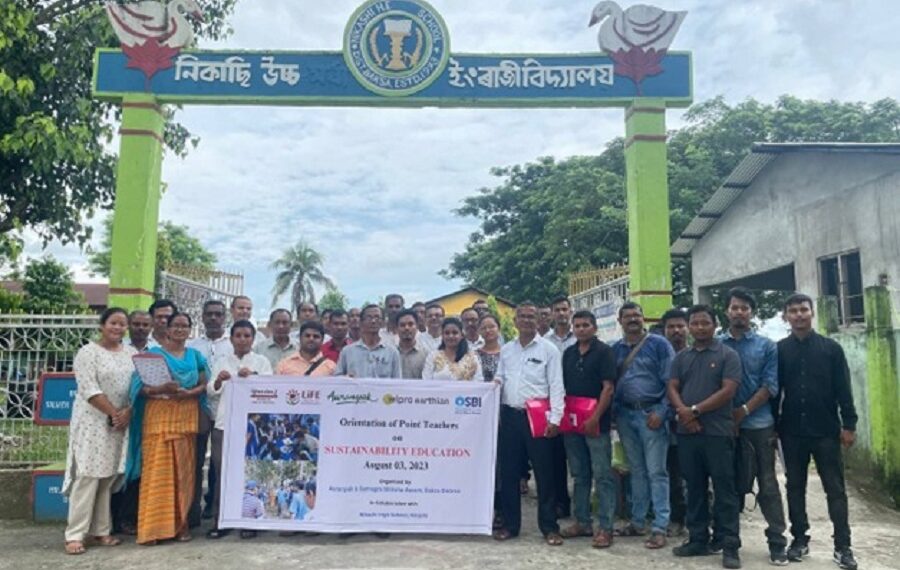GUWAHATI: In an effort to instill a sense of responsibility and awareness among students and teachers towards biodiversity conservation, a comprehensive teachers’ training workshop was organised at Nikashi High School in Baksa district recently.
Titled, “Biodiversity Conservation and Sustainability Education”, the day-long workshop saw active participation from 28 individuals, including 22 teachers representing 22 schools from nine clusters in the district.
Organised by premier biodiversity conservation organization Aaranyak, in collaboration with Samagra Shiksha Assam (SSA), the workshop focused on enlightening educators about the significance of biodiversity in and around educational institutions and how micro-level efforts can contribute significantly to the conservation of biodiversity on a broader scale.
Supported by Wipro Earthian and SBI Foundation, Jayanta Kumar Pathak, Senior Manager of Aaranyak, led the workshop and emphasised on the need to preserve traditional ecological knowledge, mitigate human-elephant conflict (HEC), and protect water sources. To engage the teachers actively, Pathak conducted interactive participatory activities during the session.
One of the key discussions revolved around the urgent need to conserve the rivers and tributaries of Bodo Territorial Council (BTC), which serve as the lifeline for thousands of people. Pathak underscored that the practice of sustainability is deeply rooted in the indigenous community of BTC. He cited the example of the Bathou religion, where the Siju tree is worshipped as a representation of the five essential elements—sun, earth, air, water, and sky—essential for life on earth.
Pranab Jyoti Kalita, District Programme Officer of SSA in Baksa district, highlighted the distinctive ecological uniqueness of the Northeastern region and the importance of aligning with the new educational policy. He also discussed the potential of youth and eco-clubs in fostering critical thinking and creativity among students to make them environmentally conscious.
Tanvi Hussain, an official from Aaranyak, stressed the importance of incorporating sustainability education into the school curriculum. She highlighted that documenting traditional knowledge and harmonising it with modern science holds the key to overcoming resource scarcity and achieving Sustainable Development Goals (SDGs).















